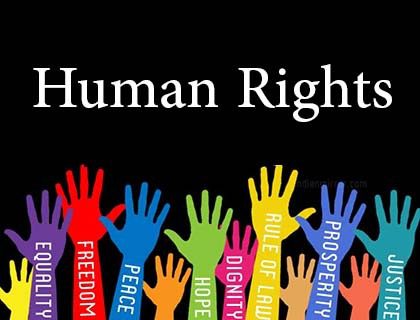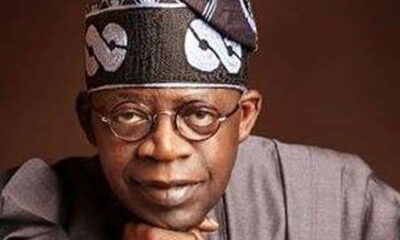National Issues
Navigating Human Rights In Nigeria -By Abdullahi Rufaida Hamidu
Nigeria actively engages in international collaborations to strengthen its human rights agenda. Ratifying international treaties and participating in global discussions contribute to a broader understanding of human rights and provide avenues for shared solutions.

Nigeria, a nation pulsating with cultural vibrancy and historical significance, is on a journey, grappling with the multifaceted landscape of human rights. This exploration unfolds against the backdrop of a complex historical narrative and a constitutional framework aimed at safeguarding the dignity and liberties of its diverse populace.
The historical trajectory of Nigeria, from colonial rule to independence in 1960 and periods of military governance, has significantly influenced the nation’s approach to human rights. The struggle for fundamental freedoms and equitable justice has been woven into the fabric of the nation’s development.
Embedded in the 1999 Constitution of Nigeria, as amended, is a comprehensive framework outlining a spectrum of human rights from the right to life and dignity to freedom of expression and equality before the law. While these constitutional guarantees provide a solid foundation, the practical implementation of these rights remains an ongoing challenge.
Modern Nigeria grapples with a myriad of human rights challenges. Instances of police brutality, gender based violence, and discrimination against minority groups underscore the urgency of addressing systemic issues. The fight for justice extends beyond legal amendments, it requires a societal shift in attitudes and practices.
Certain regions face security challenges that necessitate a delicate balance between preserving national security and upholding individual liberties. This delicate equilibrium demands nuanced strategies and a commitment to ensuring that security measures do not compromise fundamental human rights.
The establishment of the National Human Rights Commission (NHRC) signifies Nigeria’s commitment to addressing human rights violations. The Commission plays a pivotal role in investigating complaints and advocating for the protection of human rights. Civil society organizations, through activism and advocacy, further contribute to the checks and balances needed for accountability.
The scope of human rights in Nigeria has expanded beyond civil and political dimensions to encompass economic and social rights. Recognizing the importance of access to education, healthcare, and economic opportunities is integral to fostering a society where citizens can fully realize their rights.
Nigeria actively engages in international collaborations to strengthen its human rights agenda. Ratifying international treaties and participating in global discussions contribute to a broader understanding of human rights and provide avenues for shared solutions.
While Nigeria has made significant strides, the journey toward fully realizing human rights is ongoing. Strengthening institutional mechanisms, addressing systemic challenges, and fostering a culture of respect for human dignity are imperative for building a society where every individual enjoys their inherent rights.
In conclusion, Nigeria’s odyssey with human rights reflects a nation striving for progress amidst challenges. The resilience of its people and commitment to justice signal a promising trajectory. The navigation of human rights in Nigeria requires continuous efforts, societal awareness, and collaborative initiatives to build a future where the principles of equality, justice, and human dignity are deeply ingrained.



















